#song/lyrics analysis
Text
Ruoska 2nd verse analysis
Aka why there's a reference to a 20+ year-old sports scandal in this song that on the surface is about BDSM.
(Fuck you Kä for making me write a 1500+ word analysis on a reference in one verse of a song and also for forcing me to learn more about Lahti 2001 than I've ever wanted. /j)
Okay, I was already having thoughts about the second verse of Ruoska, which has lots of references to the doping controversy of FIS Nordic World Ski Championships held in Lahti in 2001 aka the biggest sports doping scandal in Finland. The MV gave new context for that part and made the use of the whole reference make a lot more sense to me, enough to develop those thoughts into a semi-coherent analysis (I'm not kidding about this being semi-coherent, I've spent most of the day writing this. You've been warned.).
This analysis does require me to talk about The Lahti 2001 doping scandal a lot. I’ve decided to focus on what I remember from the aftermath of it, especially the Finnish public opinion and reaction, as it is the most relevant part of it for this analysis. So if you’re not familiar with the topic, I recommend reading a short summary of the facts which can be found here: https://en.wikipedia.org/wiki/FIS_Nordic_World_Ski_Championships_2001#Doping_controversy
In the MV, there’s this about 20s pause between the first chorus and the second verse, where the song just stops and people looking at their phones form a circle at the edges of the spotlight (where Käärijä and Erika are) and hate comments aimed at both of them are shown on screen.
After the pause, we get the second verse:
“Lunta on tullut tupaan niin paljon et tarvii sukset / Gotten so much snow in the house that I need skis
On luokkaa Kari-Pekka nää ahdistukset / At level with Kari-Pekka with these anxieties
Et taloyhtiössä on kosteudenmittaukset/ That the housing cooperative takes humidity measurements
Kun rappukäytävän portailla on hemon virtaukset/ When there's massive tides* on the stairs in the stairway”
[link/credits to the translation]
*added context to this line that gets lost in translation is that the substance flowing down the stairs in the stairway is called “hemo” in the original lyrics. Now, I’ve interpreted it to be either blood/hemoglobin or Hemohes (which is the brand(?) name of the banned blood plasma expander substance that people were caught using in the Lahti 2001 doping scandal. Either way, this detail is relevant enough for this analysis.
-----
The idiom "tulla lunta tupaan" (to get snow in the house/living room) means to get misfortune, but I think I've seen it also used to mean getting (excessive) adversity/criticism for something (wrong) you've done (from the public, usually).
There certainly is something fucked up and rather telling that from what I’ve seen, many of Finnish fans old enough to remember Lahti 2001 (me included) needed only to hear "skis" and "Kari-Pekka" to get the doping scandal reference. After all, this is a rather subtle (as in, only Kari-Pekka Kyrö’s, one of the head coaches of the ski team, first name is mentioned in the song!) reference to a scandal that happened over 20 years ago. But it also tells you how big of a deal that doping scandal was for Finns, especially since it happened in cross-country skiing aka one of our pride and joy sports, and how much (perceived) shame was involved on national level.
And oh boy, did that sense of national shame get projected back to the public opinion about the people involved in the scandal. The scandal did have massive and long-lasting repercussions on the careers and the reputations of the people involved in Finland, way beyond the official disqualifications and suspensions. These people went from being celebrated athletes and ski team members that everyone was proud of to being mostly, or even only, remembered for being caught using doping. Their past (and future) achievements suddenly didn’t either matter anymore or, thanks to the doping scandal, were regarded with suspicion.
There’s also a layer added to this by the media’s role and involvement in all this that I’m not going to get into here. Only thing from the media side I’m going to point out is that big part of kicking off this incident was the investigation and subsequent article by Helsingin Sanomat crime journalist that revealed damning evidence of the systematic use of doping substances in the Finnish ski team.
The point is, yes they did wrong, and yes they did deserve the (official) consequences to their careers and a hit in their public images, but everything else? The figurative lashing (pun intended) they got from the media and the public? The media and the public refusing to forget and move on from that incident years after the fact and in the process probably not letting them move on from it properly, either? Being remembered only for your mistakes? That was excessive, way out of proportion to what the crime in question was.
Bringing this back to the song, the MV, and the artists:
This reference, especially with the MV context just made me think of the topic of public opinion of celebs and how quickly it can turn against you, even if you’re currently seen as a “hero” of sorts, like Finland’s ski team was in 2001 or Käärijä is now.
It also made me think of how Finns often tend to be jealous of other people's success (the good ol’ belief that there’s a finite amount of luck/happiness in the world and so other people having luck/success is to blame if you don’t have it is still deeply ingrained in us even if we don’t realize it). Like, there are always people who hate someone more successful or famous than them simply because they are successful/famous.
Also, there's often a sense of schadenfreude involved from certain parts of the public when someone famous does something bad/wrong. Something that (in public perception) "justifies" the negative turn in the public opinion on that person, regardless of how bad/wrong the thing actually was and if the reaction is actually proportionate to it. And especially in famous people’s case, there are always people who are just waiting for them to misstep, to fall, just so they can go “see? I knew they were a bad person all along, that’s why I disliked them!”. Or hell, we’ve even seen people who are constantly waiting for the moment a famous person does something that can be twisted into a controversy, or even hounding them to do something or react to something in a way that paints them in a negative light.
Now, I don't think the hate comments seen in the MV are comparable to what happened after the doping scandal (nor that are they meant to be that), and I don’t claim to know what kinds of hate Käärijä and Erika get usually but I doubt that’s comparable either. But there are some noticeable, if much smaller scale, similarities to some controversies they’ve been a part of and the media/public reaction to those. Which does make the doping scandal an effective reference to use to get the point of (often excessive) negative reactions/comments to everything you do across.
So, when the hate comment pause happened in the MV and the second verse started, it felt like the missing puzzle pieces fitting into their places, and being able to see what the second verse is trying to say. Or my interpretation of it, anyway.
The first line is rather straightforward, mentioning getting enough "snow" (aka adversity/criticism/hate, not misfortune like I thought before) into their lives ("house" in the song) that they need equipment/tools ("skis") to help them wade through it, just to keep living their lives.
The line mentioning Kari-Pekka, and anxiety at the same level as his, is interesting. Because on the one hand, he did take the blame for the doping scandal and was, according to his own words, “the most hated man in Finland” at the time. On the other hand, he did get a lot of publicity and was offered a job as a crisis consultant to teach people how to lie believably, because he appeared so calm, collected, and confident in the media during the scandal. So, while on the surface this line is about having a lot of anxiety due to the hate they’re getting, well, the dude whose anxiety levels they’re likening their own to doesn’t seem (to appear) anxious at all despite shouldering most of the blame and hate for such a big scandal, does he? Hell, he got job opportunities thanks to how not-anxious he appeared in that situation.
And the following lines, I've interpreted to be about other people having to acknowledge the damage from those hate comments seeping into their own lives as well because, depending on what "hemo" is interpreted as, either the cause of that hate (hemohes) or a rather visible representation of the pain caused by the hate (blood) is flooding the stairway now. The pain or the cause of the hate others have let into their living spaces/lives is out in the public space now. And going by the next line “Ja mä tahdon jäädä siitä kiipeliin (kiipeliin)/ And I want to get in trouble for it (in trouble)” it’s happening they intentionally let it out into the public in the first place, because they want to get in trouble for it?
There’s something fascinating about that. About acknowledging that they’re getting hate anyway, so they might as well intentionally and publicly do things that people are going to send them hate for. But also acknowledging the hate they’re getting and making other people acknowledge it as well, refusing to keep it hidden and letting it rot only their own lives.
And then continuing that yeah, we’re getting whipped/hated on for everything we do, but

#diri reads too much into things#käärijä#erika vikman#ruoska#ruoska (song)#it may not be that deep but i'm willing to dig and make it that deep#song/lyrics analysis#my meta#this is so long im sorry
105 notes
·
View notes
Text
thinking about how quill used music as his only reminder of his mother, to the point that he would risk his own life to save it and keep part of her alive, and how we're introduced to him as the one who dances while everyone around him rolls their eyes, and how he raises baby groot to be the first of the team to dance as openly and joyfully as him, and how this groot is the first one to dance during the last scene, and how rocket – who hums tunelessly while he works until he's building stereos to play tunes while fighting until his favorite song is "come and get your love" – joins him without any self-consciousness, and how quill left rocket his zune and team leadership but the first gift he ever gave him was a name for what he was: raccoon, and how drax overcomes his stubborn adherence to never dancing because what matters more to him than being a stoic destroyer is being a father, who makes the hundreds of children that look up to him laugh with delight, and who gets to watch mantis (whose innocence reminded him of his daughter) set off into the world with her own purpose the way his own child never got to, and how nebula dances along with them, no longer holding herself to the second-best status that thanos forced on her, instead at home as a leader who can fight with her family without having to compete with them, and how she stills talks to gamora, who is able to accept that she once meant the world to the guardians, once spoke their language and joined in their hugs and was part of their fun, but that she doesn't owe it to them to join in the dance and be that same person, and returns to the adoptive family that she feels at home with, and the lyric "leave all your love and your longing behind / you can't carry it with you if you want to survive," and how in order to go forward the guardians can't all stay together, but how that doesn't mean they aren't still a team and a family because how do you truly leave the people who have dragged you, doubting and kicking and screaming, toward comfort and security and happiness? for the hottest, slowest, laziest days to end, the ones where you lost best friends and spouses and children and siblings and years of your life and memories with someone, the ones where you run from your past and pretend you were never in pain, never loved anyone, you have to let that hope catch up with you (“happiness hit her / like a bullet in the back”). anyway i think this was a pretty good series like this post if you also had a laugh or two over cosmo the space dog's telekinetic hijinks!!
#gotg#guardians of the galaxy#gotg vol 3#guardians vol 3#peter quill#star lord#gamora#nebula#drax#rocket raccoon#groot#mcu#marvel#florence and the machine#dog days are over#this started as an analysis of the song lyrics and just got hysterical OOPS!#anyways james gunn. we're not friends but i do owe you a lot of emotions so thanks I GUESS.#notes
2K notes
·
View notes
Text
DR RATIO ANALYSIS
SPOILERS FOR 2.1 CONTENT!
Now, you might be saying - "Aurae, Oh No! and Are You Satisfied? are much too basic songs to analyze Dr. Ratio to! Just because he's a scholar doesn't mean that he has academic trauma!" WRONG! Before we start, I have been researching psychology for approximately six years and I plan to go into it professionally. HOWEVER, that said, I am NOT a professional (YET. One day I will be. Yay for Aurae!) so understand that everything I come to conclusions about has been analyzed with some personal judgement, personal interpretations, and this is just what I have concluded with the info that I have deconstructed from his brain. If you disagree, that's fine!
I will be pulling from my own experiences with being a "golden" and "gifted" child, as well as the experiences I've had speaking to other people who were those. I will also be pulling from my experiences of researching and seeing how people with superiority complexes work, as well as diving into how those work (from what I've seen, as well as how they conceal a lack of self-esteem).
OKAY, NOW THAT THAT LONG AHH DISCLAIMER IS OVER, ALLOW ME TO WORK MY PSYCH ENJOYER MAGIC! Let's deconstruct Dr. Ratio like a lego toy.
Let's start off with how Dr. Ratio presents himself. When you first meet him, he seems like a haughty, arrogant asshole. He likes to PRESENT himself as a stoic, superior scholar who is purely in it to win it, and I got total "*stares down at your tiny body and laughs at how you lack knowledge*" vibes at the very start, due to how he goes around calling people idiots all the time. However, he DOES lose the idgaf war, and we can very quickly see that he does care for other people, even if in his own, strange way. Dr Ratio presentation: An asshole. The reality?
His entire character is based around the idea of helping the masses. He wishes to spread knowledge through the cosmos and give people who didn't have access to it, access. He's a harsh teacher, and calling people 'idiots' is NOT the way to motivate them, but he's doing his best™.
Actually, no, I'm going to go full psych into this. Okay, so here starts the Dr. Ratio and my FATHER COMPARISONS. My father is a professor and he is often called a harsh grader by his students. However, I've spoken to him multiple times because I was curious - why is he so harsh and diligent with his grading system? The answer is - he wants them to actually learn. When he's grading, he gives them harsh marks because he wants them to know exactly where they messed up, and he's always willing to stay after hours to help students understand where they can't. My father also is an enjoyer of knowledge, and for as long as I've remembered, he has prioritized teaching me how to think critically. He wants me to be able to think for myself - and I think that's what Dr. Ratio wants, too. He wants for his students to be able to fully comprehend and absorb the information that he teaches, and although his methods are harsh, he genuinely wants to help. My father's like this too - he hates students that waste his time or aren't here because their hearts are in it. Dr. Ratio hates people who aren't taking their education seriously because knowledge is important. Knowledge is a tool, and to disregard it completely is lowkey kind of insulting - especially when there are people who weren't privileged enough to actually get it, so this isn't something that you should take for granted. Dr. Ratio despises people who take knowledge for granted.
Also, I disagree with the claims that say that Dr. Ratio hates the genius society. He shows open respect for them in his voice lines. Just check them if you need proof. Also, I'll delve into the idea of Aeons and recognition later.
Now that we’ve established that Dr. Ratio kins my dad, let’s let's tackle the 'stoic' allegations. He is LOSING the idgaf war. Like, really badly. He has a temper of a thousand suns and snaps at people frequently, despite his 'impassive' face, his tone holds a LOT of emotion. He seems to feel very deeply and has a shit ton of empathy for others - why else would he be dedicating his entire career to helping others? Of course, he doesn't express this in 'typical' ways of being openly kind - but it doesn't mean that he doesn't care for other people. In fact, he seems to be pretty good at putting himself in the shoes of others and understanding them - expressed in the 2.1 quest where he tells Aventurine to tell him if he can't hold on any longer. Also, he loses the IDGAF war because he is actively trying to help people who want to learn and trying to spread logic and knowledge across the cosmos to those who didn't have it before. Would a man who didn't GAF do that? No!
Now that we've covered his view on knowledge and the way that he presents himself, let's turn to the way that he SEES himself. Now, this is where we get into the nitty gritty of gifted child trauma & academic trauma as well as crippling expectations. It's literally explicitly said in his character stories that he sees himself as mediocre, and it's canon that he doesn't have a good view of himself. His self-esteem is down in the fucking trenches along with my sanity as I write this analysis. The reality is - being called a genius your whole life doesn't really make you feel better about yourself. I'd know. I was. In fact, it makes you feel fucking worse when you can't live up to an expectation. We all fail in life. It's part of being human. But when you're held to such high standards - idolized for your knowledge and the way that you're 'gifted' - the crash comes really fucking hard. Failure is inevitable, and when people who are held on that pedestal experience it, they take it really bad.
The reality is that nobody - not even geniuses - are perfect, but you grow up believing that you are. Then, when you fail for the first time, it all comes tumbling down. The first time I came home with a bad grade was one of the most humiliating moments of my life. I hadn't studied because I was arrogant and I thought that I was smart enough to pass without putting any extra effort into it - because I was a 'gifted' child, right? I should've been able to do it without studying like the other kids. And that's the thing with gifted children – you grow reliant on that title. You cling onto it for dear life for motivation, as well as self-perception. Little by little, the person you are falls apart as you slave away to the perception other people have of you. I think basically every gifted child that I've ever spoken to is a victim of this – and of course, you can heal from this mindset - but it's a hard one to shake.
Ratio's way of presenting himself as being a 'genius' and 'arrogant' also seems to contradict the way that he calls himself 'mundane' at the same time. However, these are two mindsets that can coexist. One part of you believes that you are a genius and that you are perfect, while the other part is crumbling and calling yourself good-for-nothing every time you make a mistake. It's a tiring cycle to live in. This usually leads to people shutting themselves out and closing themselves off after living like that, pushing back your own feelings in favour of being the perfect child. However, we don't know the exact details of Dr. Ratio's childhood, but we can infer that he was held to a pedestal, and this is a very harmful mindset for a child to have.
His superiority complex comes both from how other people view him, but it's a way to cope with his crippling lack of self-esteem. I'm sorry my guy. Also helping others probably helps him feel like he's worth something and makes him feel better because he bases his entire worth off of what he can do and how he can help others. However, this is just my personal interpretation backed by what I have already deconstructed.
In general, this is an easy way to crush self-esteem. You spend your whole life working to meet the image of what other people think you are. In fact, another reason why Dr. Ratio might be so harsh is because that’s the kind of attitude he holds towards himself when conducting research – he’s as hard on himself as he is to others. You end up hating the idea of failure, instead of seeing it as it should be - a way to improve and grow. Actually, I think this could be a reason that he went out of his way to break that illusion of 'worshipping geniuses' in the Space Station. Maybe some sort of childhood connection? Personal connection? In his endeavour to spread more knowledge and make people think for themselves and not blindly follow geniuses, to wake them up and let them think for themselves - maybe, somewhere, in there, he's helping that little child that was almost dehumanized for his intelligence. TLDR: Conflicting mindsets due to trauma, brain vs heart almost - his knowledge that he is a genius vs the crippling lack of his self worth.
Now that we've established Dr. Ratio's self worth, let's take a look at the impact Aeons had on him. Nous, the Aeon of Knowledge itself. I think in a world where the Gods are real, tangible beings that you can reach out and talk to - it makes sense that someone with high ambition and someone who's been called a genius his whole life would seek the confirmation of Nous. When you're a man of knowledge, and you've spent your whole life working with it, being praised for it – it feels natural to look for a god to look down upon you and bless you, right? The Genius Society – it should house him, because he is a genius as well, right? Imagine this – you have been called a genius your whole life, held to that kind of pedestal for so long, and now you wait for the recognition of the Gods. Because if you truly are a genius – then surely, a higher being will recognize your intelligence, right?
The invitation never comes.
And then, comes the doubt.
What if I'm really not a genius? What if everything I've worked for is a lie? Aeons are beings that are 'absolute'. If the god of Knowledge won't accept you or even cast a glance upon you, does that mean that everything was wrong. Gods see more than humans, after all. Gods know more than humans - and that spiral... I think you can see if. (If you don't let me know. I will ramble about how a failure like that can make you spiral down into a worse mindset).
However, the reason why Ratio was never invited to the Genius Society is simple. It’s because he LOSES THE IDGAF WAR. Now, if we look at all the people we know who are in the Genius Society - we find one thing in common. They’re in it to win it for themselves. They don’t help others using the knowledge that they’ve gotten - they use it to pursue shit for themselves. The people of the Genius Society are inherently self-serving. They WIN the idgaf war. Ratio LOSES. Do we see now?
Ratio’s empathy is the reason why he wasn’t let in. He is too human. Nous is a computer. Herta is detached from people. Ruan Mei is literally looking at life as test subjects. Screwllum is a robot.
OUR DOCTOR MAN LOST THE IDGAF WAR, BECAUSE HE IS HUMAN AND FEELS FOR OTHERS!!!
Also, it’s a plausible theory that Nous’s definition of ‘genius’ is different from the human definition of ‘genius’ – it’s a computer, after all. Who knows what’s going on in that code head of its.
However, we still love you Ratio. Never stop losing the IDGAF war.
TLDR: Nous is a computer. It is also in it to win it. It is also self serving. It gazes upon the hoes who are here to win it for themselves. Ratio is busy serving the masses and cooking knowledge in his frying pan. To it, there is no logical reason to be doing this. Therefore, no reason to invite this guy to the Genius Society.
Ratio’s gifted child trauma says otherwise. He wants in. Why wouldn’t he? He’s been working his whole life as a genius.
Nous is like… nah bro, you care too much. Ratio is like, ‘what the fuck?’ And then the AEON OF KNOWLEDGE GOES FOR THE MILK.
Okay, now, quick shoutout to Ratio wanting to help others. He is just like me fr. SO BASICALLY, RECAP OF EVERYTHING I JUST SAID:
Ratio LOSES the idgaf war because he cares about other people. Spent his whole life as the golden egg, and then turns to the gods for recognition because of the inherent trauma of being a child genius. He goes, "hey bro, can you confirm that I am in fact a genius?" and Nous goes, "no, you are too busy cheffing for the masses." Ratio goes, "what the fuck?" and then we collectively realize his attitude comes from blocking off his feelings (while failing miserably), being salty about not being recognized, being put on a pedestal for his whole life, and his crippling depression *cough* lack of self worth *cough*.
Oh, and the "I will never be enough" thought train probably hits him every single day. He is not enough to be recognized by a God. Gods are superior to humans. Maybe nothing has worth after all. Hey, that's Nihility! Hi IX, let's hear what you have to say.
*muffled ix noises*
I see, I see.
The consensus is: HE'S TRAUMATIZED BY EXPECTATIONS! HE WILL PROBABLY SUFFER FROM BURNT OUT GIFTED CHILD IF HE HAS NOT ALREADY!
Okay, now, before I delve into song lyrics (and I KNOW this has been long, just bear with me) I want to talk a little bit (read: a lot) about his relationship with Aventurine. We all know that he cares about Aventurine in his own way. But I want to pull in another idea that I didn’t cover before:
Ratio’s fucking emotional constipation.
Basically, the reason why he has trouble connecting with others is because he was most likely alienated by others as a symptom of being called a genius and being put on a pedestal. This makes him seem unapproachable to his peers, most likely, and therefore, as a result, doesn’t know how to properly connect with others. This just makes his way of presenting affection and care to others even more challenging – because he just doesn’t know how to do it in a healthy and clear way. Academic trauma causing emotional problems, because he’s probably a little bit out of touch with his own. Processing? No! Research. Also, this is very important for understanding Ratio’s character in my opinion, because he’s just a little guy who doesn’t know how to articulate. Maybe he’s got a touch of the ‘tism. Tism mutuals, do we agree or disagree?
However, in comes Aventurine. Love Aventurine, but they are both emotionally constipated. Aventurine displays his affection in ways that Ratio probably only catches after re-analyzing their time together about five times. He’s also a very closed off individual – but Ratio knows this. A cute thing is that Ratio is patient where he needs to be, even if he’s generally a pretty hot-headed guy, and I’m like… bro… that letter… “I wish you the best of luck”... I will wait for you…. GAY ASS MAN…
Sorry the Aventio demons took over. Anyway, what I’m trying to say here is that they both have nonverbal communication with one another that they clearly decipher and Ratio obviously cares for him (he came back and almost jeopardized the plan just for the sake of his ‘coworker’... okay gayboy…) and they just have such a neat little dynamic… Aventurine lets Dr. Ratio do his thing… understands his emotional alienation to a degree…. they’re so neat….
Okay, Aventurine segment over. NOW, FINALLY, WE CAN GET TO THE SONG LYRICS!!! YAY!!!! We all cheered!!!
We are going to be here for two more amber eras, because I realized I actually want to analyze every single lyric from both of these songs. Brace yourself for like, 2k more words. Help.
I think it’s only proper that we start off with ‘Oh No!’ the song that has haunted me since my childhood.
“Don’t do love, don’t do friends
I’m only after success
Don’t need a relationship
I’ll never soften my grip”
Remember when I mentioned that alienation was a big part of Ratio lore? Yeah, that manifests itself in this. When you spend your entire life chasing after knowledge and being held to that standard of untouchable genius, it makes sense that you couldn’t connect with others and that you turn your gaze only to success. Therefore, relationships that are interpersonal lose meaning for a bit – you’re just looking for answers and ways to help them, not connect with them. Also, this is what he wants to do – so he’s never going to pass down an opportunity to better himself or to help someone else.
“Don’t want cash, don’t want card
Want it fast, want it hard
Don’t need money, don’t need fame
I just want to make a change
I just wanna change, I just wanna change”
This is directly alluding to his reasonings for distributing knowledge across the cosmos. Was he based on this song? Maybe he was. He’s not looking for money or fame, his ultimate goal is actually pretty selfless – to bring knowledge and give people the tools they need to think for themselves. He just wants to make a change – he just wants people to be able to have access to knowledge and help cure ‘stupidity’. He wants to do it as quickly as possible, always reaching for lofty goals that might seem impossible, but he will make them possible.
“I know exactly what I want and who I want to be
I know exactly why I walk and talk like a machine
I’m now becoming my own self-fulfilled prophecy
Oh! Oh no! Oh no! Oh no, oh!”
Ratio knows his goal. He knows what he’s working towards. I do believe that he understands why he is the way that he is – he has a degree in Psychology, after all. He knows how he’s been hurt but at the same time, the trauma brain probably doesn’t want to recognize it and he hasn’t stepped into healing yet. He knows what he went through impacted him, but he’s too busy helping others to help himself. He’s becoming what he wants to be, and yet he’s not, all at the same time – which causes the idea of “oh no!” as a kind of cry for help, almost. He’s too proud to ask for it himself, of course, so he’ll fall alone until someone manages to catch him and give him the strength to continue holding on. Aventurine is that.
“One track mind, one track heart
If I fail, I’ll fall apart
Maybe it is all a test
‘Cause I feel like I’m the worst
So I always act like I’m the best”
Now, these are the exact lyrics that made me associate this song with Ratio in the first place. He’s got a singular goal that he will do nothing to stop at getting, that he goes so far to get to. However, as I mentioned earlier, failure is not an option for those who were deemed gifted or genius. You are perfect, so therefore you must live up to everyone’s every expectation and surpass them, too, in order to keep your perception of yourself intact. Ratio does not hold himself in high regard, but acts arrogant in order to hold himself together and not fall to the self-deprecating thoughts, even if they fall through the cracks. It gets tiring to hold yourself together like that for a long time, you know?
“I’m gonna live, I’m gonna fly
I’m gonna fail, I’m gonna die
I’m gonna live, I’m gonna fly
I’m gonna fail, I’m gonna die”
Remember how I was talking about contradictory mindsets and how they can coexist. This is them. The feeling of crippling self-hatred and lack of self esteem versus the idea that you can do it, you can make a difference – you were born a genius, this is what you’re going to do. This is the knowledge that you are a genius vs the lack of self-esteem that Ratio has. “Mediocre” vs “genius” mindset, eh?
All the other lyrics in this song are repetitions of what I’ve analyzed before, so let’s move onto “Are you Satisfied?”
To be honest, there are only a few lines in this song that allow me to connect it to Ratio, so therefore, I will only be analyzing them. However, if you think that other lyrics can connect to him, I’d be interested in knowing how.
“What you’re gonna be
It’s not my problem if you don’t see what I see
And I do not give a damn if you don’t believe
My problem, it’s my problem that I never am happy
It’s my problem, it’s my problem on how fast I will succeed”
Pretending to not care about how the world sees you is so fucking real. Sometimes, you really don’t give a shit, and sometimes it’s all you can think about. Ratio… doesn’t seem like he’s the happiest person. He works himself hard and he’s always chasing after a goal that must be exhausting. He’s always doing his best, and I think even with his empathy, it’s easy to start not giving a shit after trying for so long and so hard. Accepting help is one of the hardest things that anybody can do, especially with how much pride he has. His personal problems are his personal problems and he can deal with them on his own.
“High achiever, don’t you see?
Baby, nothing comes for free
They say I’m a control freak
Driven by a greed to succeed
Nobody can stop me”
Nothing comes for free. A lot of the things Ratio has achieved is due to his own intelligence, yes, but also because of a shit ton of hard work. His goal is literally to cure the universe of ‘stupidity’ – and that’s a pretty large fucking goal. He is a high achiever who likes to know the details of every situation when he can in order to try and make things better, and he is driven by a greed to succeed. Why wouldn’t he be? Success is important, and success means helping more people. He isn’t going to allow himself to be stopped by anybody – not even anybody from the Genius society.
Okay, and we have finally reached the end of my analysis! This caps at around 4k words, so if you stuck around for this long, thank you so much. I would love to hear any of your comments, and I hope you laughed a little bit. Thank you again! This means so much to me that you read. <3
#dr ratio#drratio#honkai star rail#hsr#hsr dr ratio#hsr ratio#veritas ratio#character analysis#song lyrics#song analysis#attempt at humour#so that you don't get bored#long ahh analysis#analysis#media analysis#aventio#ratiorine#managed to sneak them in#i love homos#help#god help me#aurae analyzes
335 notes
·
View notes
Text
Ive been listening to Secret Worlds a lot recently and I havent seen anybody talking about my favourite part, so I'm going to.
When they sing "you asked me to climb, I never learned", Madeleine and Joey sing the last three words differently. Her voice raises, a desperate plea to be understood, whereas his goes down, resigned and unwilling to challenge what is indisputable. He has already given up, whilst she is still fighting. It really emphasises how far they've drifted, that they can't even find any common ground when they share the same grief, the same regret.
#the amazing devil#joey batey#madeleine hyland#song lyrics#tad#amazing devil#music#song analysis#the horror and the wild#love run#ruin#secret worlds
246 notes
·
View notes
Text
I cannot stop thinking about "The Last Great American Dynasty"
There's an obscure, independent folk singer-songwriter whose work I've followed since she released a double album debut during the pandemic. It's all moody, introspective pop-folk - acoustic guitar and pianos against the occasional 808 beat.
While I'm clearly not the target audience, there is one song in particular that has stuck with me ever since the very first time I heard it.
Let's discuss.
Sources and further reading:
--- WIKIPEDIA ---
Rebekah Harkness: https://en.wikipedia.org/wiki/Rebekah_Harkness
Standard Oil: https://en.wikipedia.org/wiki/Standard_Oil
High Watch: https://en.wikipedia.org/wiki/High_Watch
John D. Rockefeller: https://en.wikipedia.org/wiki/John_D._Rockefeller
The Ludlow Massacre: https://en.wikipedia.org/wiki/Ludlow_Massacre
The Homestead Strike: https://en.wikipedia.org/wiki/Homestead_strike
--- ARTICLES ---
Vogue - The Outrageous Life of Rebekah Harkness: https://www.vogue.com/article/the-outrageous-life-of-rebekah-harkness-taylor-swifts-high-society-muse
Small State Big History - Rebekah Harkness, the Scorned Socialite of Watch Hill : https://smallstatebighistory.com/rebekah-harkness-the-scorned-socialite-of-watch-hill/
St. Louis Magazine - The story of Rebekah Harkness is way more complicated than Taylor Swift lets on: https://www.stlmag.com/culture/music/the-last-great-american-dynasty-rebekah-harkness/
St. Louis Style - Who is Rebekah Harkness and Why is She the Star of Taylor Swift’s ‘The Last Great American Dynasty’?: https://www.stlouis.style/throwback-thursday/who-is-rebekah-harkness-and-why-is-she-the-star-of-taylor-swifts-the-last-great-american-dynasty/
SF Gate - Everything you think you know about the Winchester Mystery House probably isn't true: https://www.sfgate.com/bayarea/article/real-story-of-sarah-winchester-mystery-house-12552842.php
New York Times - IS THERE A CHIC WAY TO GO?: https://www.nytimes.com/1988/05/22/books/is-there-a-chic-way-to-go.html?pagewanted=all&src=pm
#tbskyen#tb skyen#video essay#taylor swift#last great american dynasty#essay#song analysis#lyric analysis
220 notes
·
View notes
Text
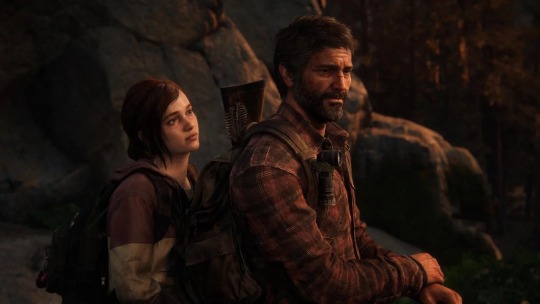
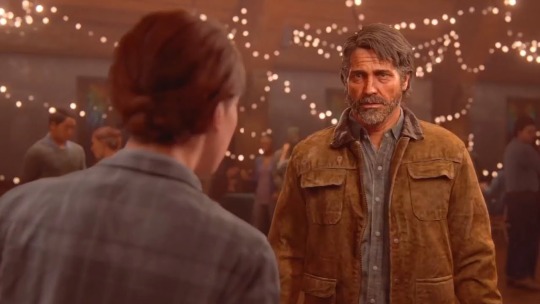
i had all and then most of you…
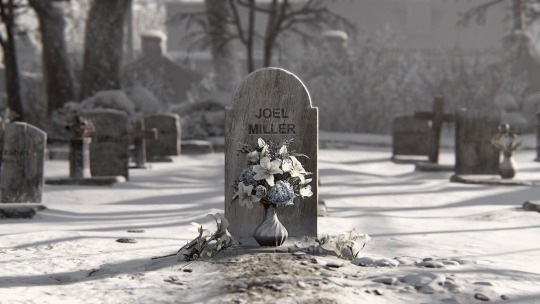
some and now none of you…
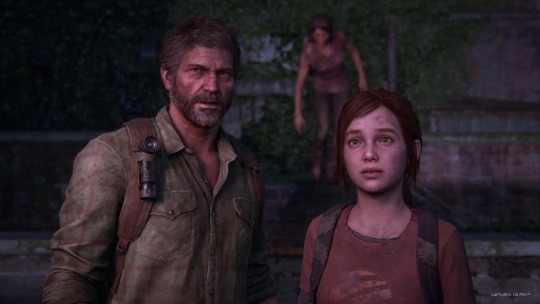
take me back to the night we met…
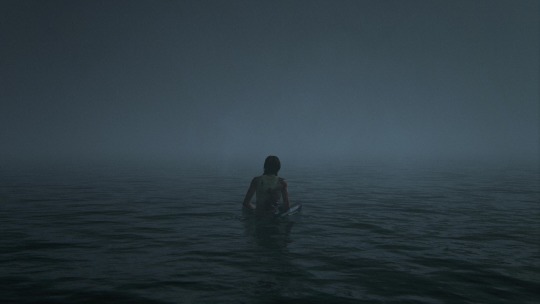
i don’t know what i’m supposed to do…
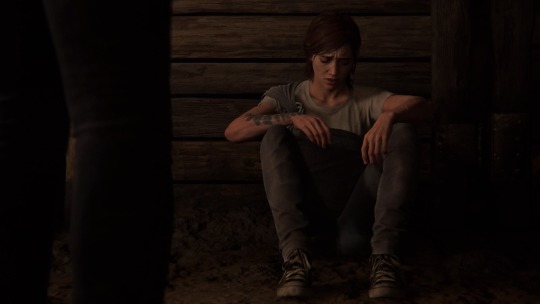
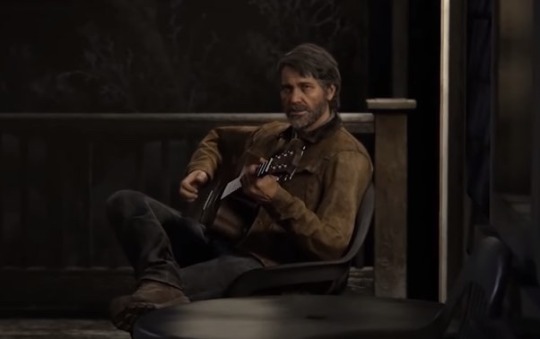
haunted by the ghost of you…
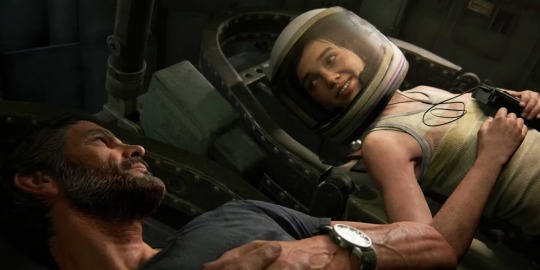
take me back to the night we met…
The Night We Met ~ Lord Huron
#the last of us#joel miller#pedro pascal#ellie williams#hbo the last of us#the last of us hbo#bella ramsey#joel tlou#ellie and joel#tlou#tlou analysis#tlou angst#tlou fluff#tlou game#tlou spoilers#tlou 2#tlou edit#lyric edit#song lyrics#lyric quotes#lord huron#the night we met#tlou hbo#tlou part 2#ellie tlou#the last of us game
211 notes
·
View notes
Text
i don’t recommend rewatching alien stage because you just notice more things like the fact that ivan wiped away till’s tears after the karaoke fiasco
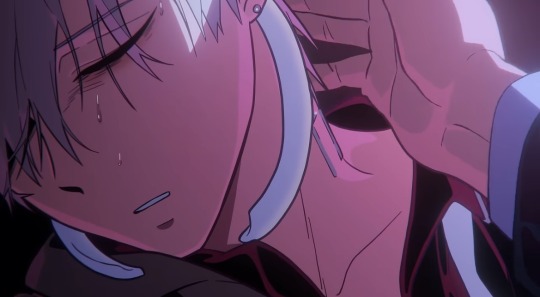

#my ramblings#one day i’ll do a proper lyrical analysis on these songs#it would be a disservice not to#i would also love to talk about ivan and sua’s relationship#unfortunately my brain is mush rn so uh#alien stage#alnst till#alnst ivan#ivantill
139 notes
·
View notes
Text
Taylor Swift lyrics that are Jason towards Bruce
"Never impressed by me acing your tests."
"They'll be happiness after you, but there was happiness because of you. Both of these things can be true."
"After giving you the best I had, tell me what to give after that?"
"I gave you all my best mes, my endless empathy, and all I did was bleed as I tried to be the bravest soldier."
"I got nothing to believe unless you're choosing me."
#dc#dc comics#comics#comic books#character analysis#character dynamics#jason todd#red hood#bruce wayne#batman#batfam#batfamily#batkids#taylor swift#dear john#happiness#you're losing me#songs#lyrics#music#angst#jason peter todd#robin jason todd#the red hood#media analysis#media commentary#evermore#speak now#midnights
79 notes
·
View notes
Text
Since I am such a normal individual I’ve decided to attempt breaking down vanoé’s character song “Le Formidable”. I don’t hear much talk about it but the lyrics are just as cryptic and wild as the OP/ED.
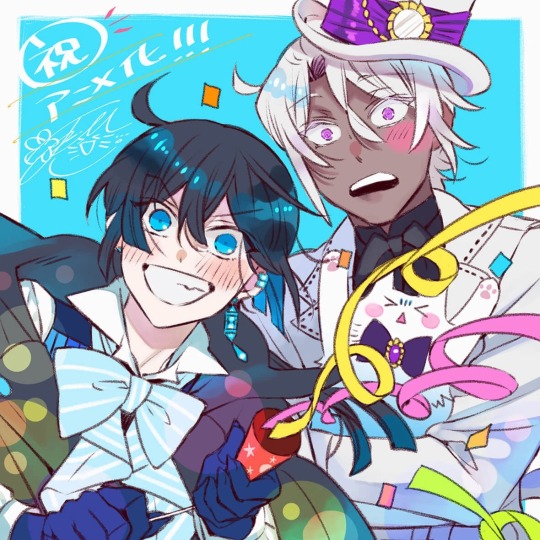
Before we get into it, in terms of translation, I could only find one on YouTube that thankfully color-coded the lyrics so I could decipher who sings what. If anyone has any other translations, I’d love to know please. So a bunch of the lines you can kinda figure out who’s singing but here’s how it’s gonna be:
Vanitas =💙
Noé =💜
Vanoe= 💙💜
Simple enough let’s get into it :)
💜: /I want to stay in bed feeling the warmth of the sun and drift in and out of this sweet dream/
Already we’ve mentioned dreaming, a running theme in this song. There is the well-known line Teacher says in chapter 55...
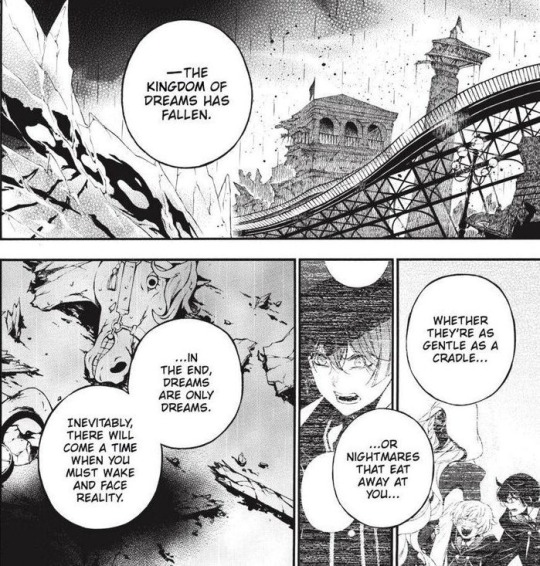
Sleeping, specifically in regards to Noé, is something mochijun makes the audience take note. He can’t sleep without holding something. When he can’t fall asleep, it is highlighted like the night Vanitas rejected Noé drinking his blood. He doesn’t want Vanitas to disappear and I personally like how in the recent chapter, Vanitas stays by his side for a while. Almost like callback to that moment on the train but I’m getting carried away. You get the correlation I’m making, it’ll get very important later on.
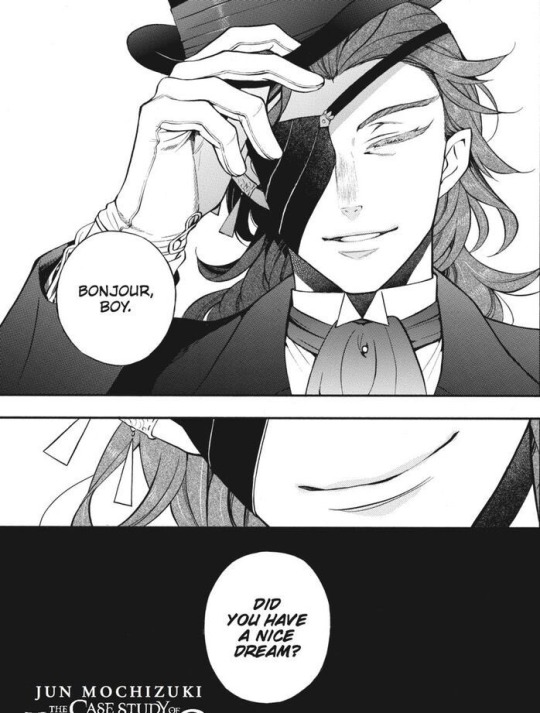
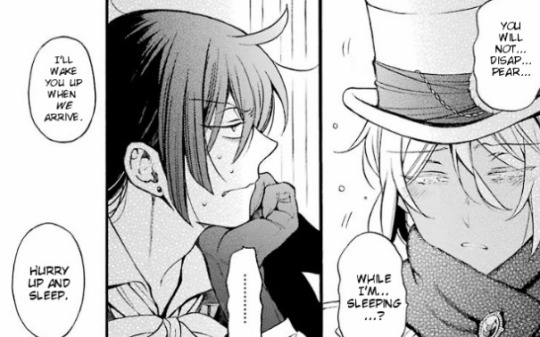
We also have those warmth and sun connections to Noé, a large part of his character and Vanitas’ gravitation towards him.
💙: /With this grey weather today, this day will go by without any harmony/
We see Vanitas’ pessimistic outlook on life; grey, cloudy, devoid of color. Devoid of comfort and obviously these two contrasting people will clash but mix together throughout the song.
💜: /Tarte Tatin, Altus Paris! Endless interesting things!/
💙: /It’s always like this! Here and there, endlessly losing sight./
This seems pretty straightforward, Noé is getting distracted by all the wonderful things as usual and Vanitas chastises him. But let’s frame this another way, Noé is choosing to not focus. It’s simpler that way. He’s turning his focus elsewhere to better things, more pleasant things. And Vanitas is trying to wake him up. I’ll explain more in my theory soon.
💜: /What to look for today from this city/
💙: /Ah with all these things/
💙💜: /There is no time to rest/
Simple lyrics here. No comment.
💙💜: /Le formidable! Le formidable! It’s really easy. Just colliding, rolling down, and repeating again/
Here we are entering the chorus. There’s a common thread of repetition in every OP and ED in VnC. Like clockwork, these two have fallen into this pattern.
Colliding- Vanoé meeting, two worlds learning how to come together, joining as one
Rolling down- their downfall, incoming despair and tragedy
Repeating again- they find themselves back where they started, fated to be born and to die
Let me say the first part of my theory and keep this in the back of your head while remembering the lyrics: VnC is not a time loop in the traditional sense but rather a loop of memories. Also keep in mind the first ED Zero: “Now I remember, oh I have never lived a day without you. Untie the layer of memories...”
💙: /This worthless-/
💜: /wonderful-/
💙💜: /world we are walking on. Even not knowing is sometimes nice, right?/
Again, vanoé with different outlooks on life meet each other. But more importantly, we see the display of ignorance or blissful unawareness. We the audience have a vague idea on how this story ends and in a way, so do they. Vanitas knows very well he is doomed and has already entrusted Noé to end his life if it comes to it. But we also don’t know the specifics of their downfall and neither do they.
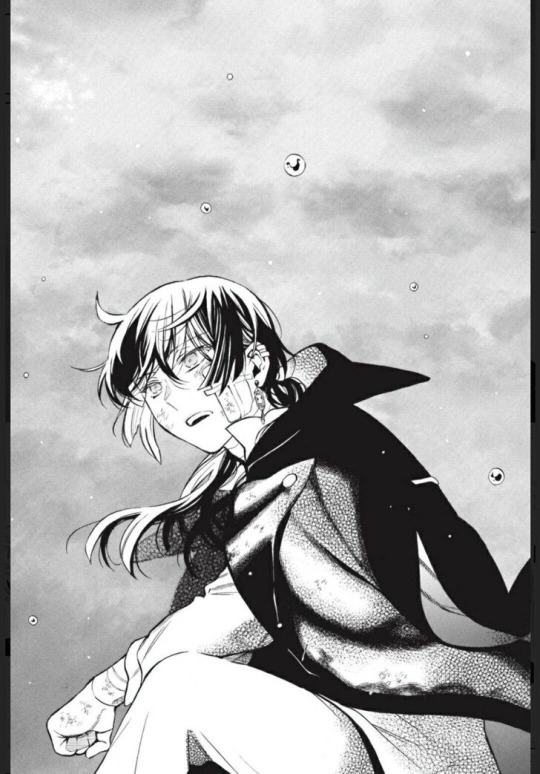
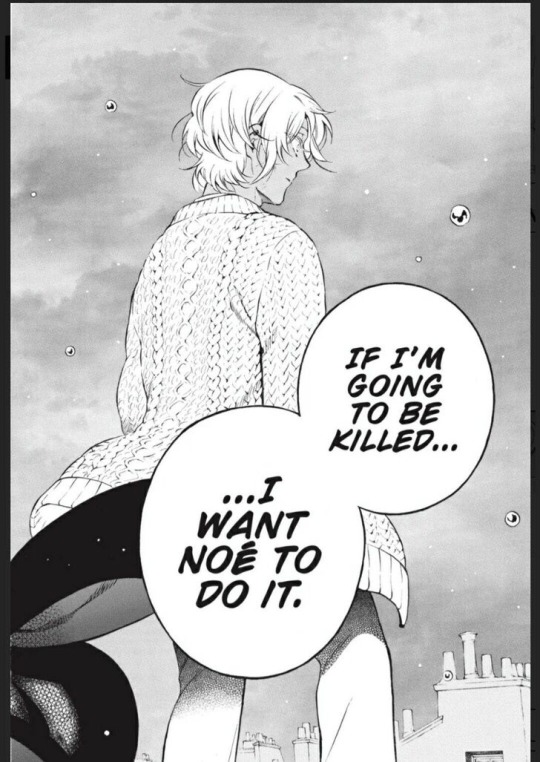
So this line has a double meaning that refers to the characters and the reader. As yeah it is nice to read vnc and enjoy the happy moments without knowing the painful details of what’s to come.
💜: /Over there something is flapping their wings/
💙: /And these uncountable days pass by. It’s not worth worrying about. So many unknown things, without meaning/
💜: /Escalier! I want to see the bright colors beyond!/
Noé, again giving his attention to supposedly insignificant things as Vanitas tends to see the larger picture, not caring for the mundane. Uncountable days can be matched with the grey weather mentioned earlier. But that also means things are murky, blur together, cloudy. They don’t make sense to Vanitas (such as love, his self-worth, the nature within people) while Noé wants to experience all the brightness of the world.
💙: /I told you to be quiet today, yet here we are!/
💜: /Now you loud person!/
💙💜: /I told you I hardly have time to breathe/
So, hypothetical scenario if we take this song literal: Vanoé is exploring the city because Noe wanted to Vanitas couldn’t say no. Vanitas is fed up and Noé thinks his complaints are aggravating. But this part shows a lack of understanding. They’re yelling about their own hardships but don’t see the other’s perspective.
💙💜: /Le formidable! Le formidable! It’s a simple thing. It’s just finding, losing sight and repeating again/
💜: /I want to dream/
💙: /It’s just a dream/
💙💜: /The world keep walking while not knowing the truth at this point/
Ok there’s a lot to dig our teeth in here. First of all, the finding, losing sight, repeating is another way of describing the colliding and rolling down said prior. Vanoe find each other, they lose each other, it’s fated to happen all over again. Now the big piece here, I want to dream/It’s just a dream. Surface-level interpretation > another instance of their differences. Noé wants be surrounded by dreams and wonder. While Vanitas looks at that beauty and scoff at it, since it isn’t real therefore not worth caring for. But if we read into this carefully, Noé wants to dream. He wants to stay in these memories, he doesn’t want to live in a world without Vanitas.
Let’s go back to OP 1: “I love this world and the light only you give me.”
We know OP 1 is Noe’s POV so let’s ask ourselves why would the Noé we are seeing, the one smiling at all the colors of the world say Vanitas is the only light he has (emphasis on “only”). Because the Noé singing the first OP is operating with far more knowledge and despair. We don’t know the truth at this point. “This world” is not real.
Allow me to offer what I think is happening. Noé and Vanitas meet, they go on this journey of understanding, trust, and love, Vanitas reaches his end and is killed by Noé. Noé lives on. We can tell the Noé writing this story is full of regret and sadness. But why is he writing this all down? He’s retelling the memories, putting them down physically on paper. Two things happened:
a) He exchanged his name with Naenia, wishing to remain in a world with Vanitas in it. Because that wish is still very present, Naenia has great interest in Noé. She mentions seeing him before in Louis but it could be a classic mochijun misdirect and it’s actually from receiving his name in a different iteration. There is that official art with Noé wearing Vanitas’ coat with that goat entity he saw in Gevaudan, pinned to his vest.
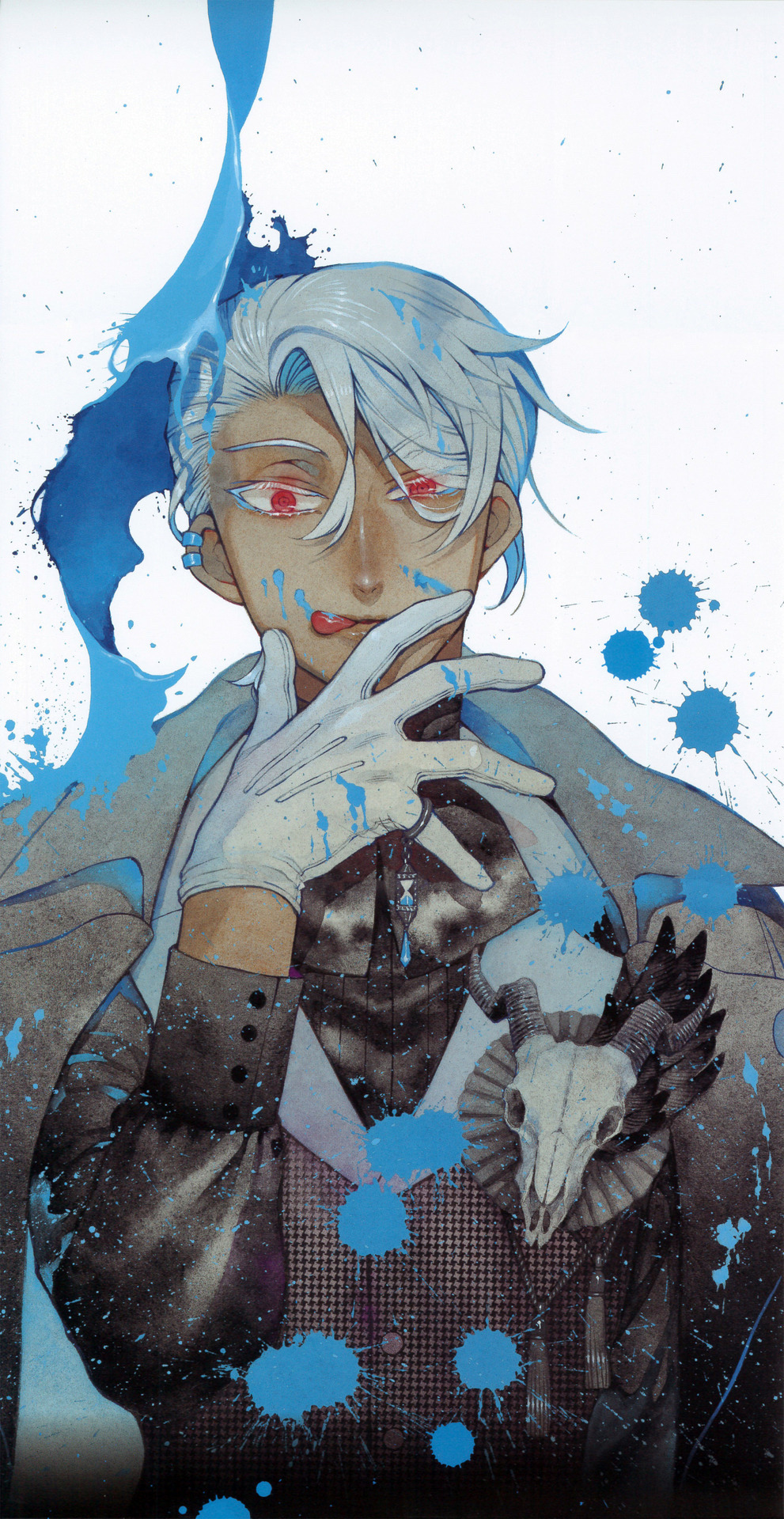
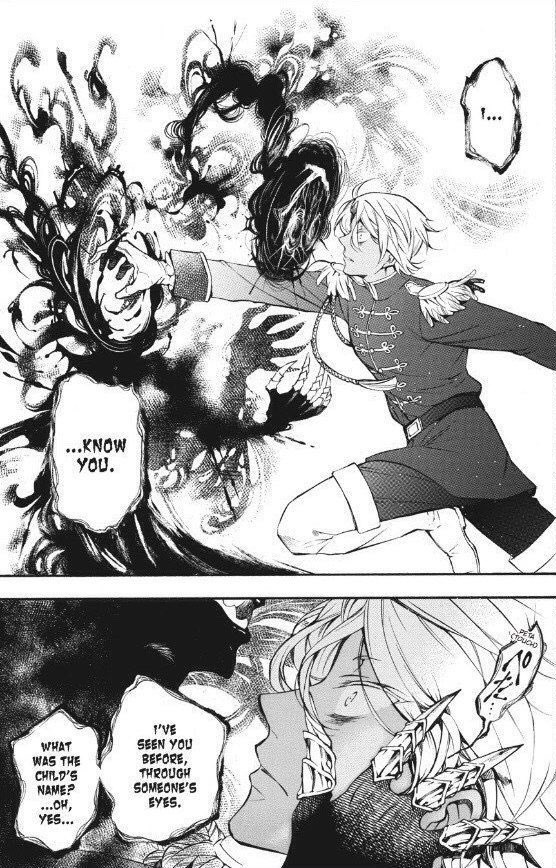
However this can only work if Naenia is still around and isn’t resolved/defeated in the memoirs.
b) This is more likely in my opinion. Noé uses the Books and the memoirs act as a catalyst for him to have the world become his memories or for him to live in them. I know only those with blue blood or something can use the books.
Which is why Dr. Moreau had those experiments with Vanitas and Misha. Don’t worry, I already have a theory that Archivistes are some form of blue moon vampires but that is a whole other discussion. Point is, I think the Books of Vanitas are like an Elliot sword situation. Yes, Elliot owns the Nightray sword and carries it around but you don’t know its true purpose in the story until Leo wields it.
Noé causes these memories to replay, perhaps to save Vanitas or simply to dream again. Go back to when he was last happy. But here’s the thing, the Noé in this memory is unaware or ignorant of this, sees his present world as the real one and undergoes the events of the series. Vanitas dies, he lives on, and creates a memory world for himself. Rinse, recycle, repeat. Essentially, the first ED gave it away. The entirety of VnC is a layer of memories. Even the narrator Noé we are hearing is a memory that is trying to manifest a world of his own.
Reality and dreams are all intertwined now and Noé got lost in it. There are leaks in the cracks, for example when Vanitas cries and tells Luna his mother died at childbirth why would he call to her. Initially, you can read this as he’s just missing what he never had. But what if Vanitas’ mother was present in his life 9 memory loops ago but because these memories get further from the truth the more it happens, Noé simply forgot that detail when making the memoirs at some point in time. So now, in the memory layer #52 Vanitas has no mother.
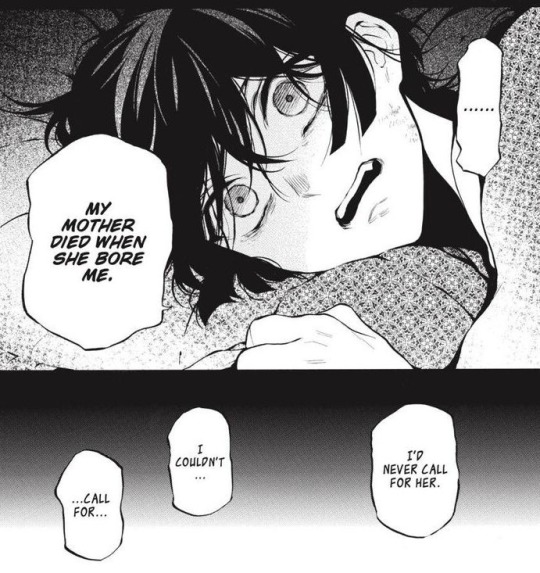
💜: /We will see what we “cannot see”/
💙: /We will know what we “don’t know”/
💙💜: /The final stop of this world that seems to be changing, seems only further ahead/
Noe’s line possibly goes into his Archiviste nature and how he experiences reading memories. It can as well build back into the dream/memory loop thing, he’s seeing things he can no longer “see.”
Vanitas’ line can be drawn to what Noé said during their fight.
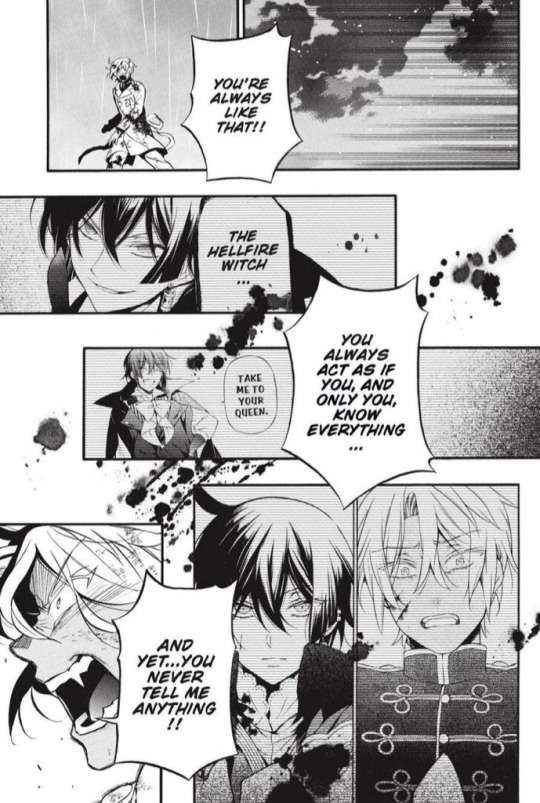
Vanitas acts like he has the final word and has a full grasp of how this world/himself works. But he really doesn’t and Noé is living proof of that, proving him wrong on several occasions that there’s still hope, they can’t give up yet, he won’t leave him etc. The final stop of this world is changing, but it’s further ahead. This is a story, a preserved section of time from the past. We gotta ask ourselves... why would the last stop be changing? Again, Vanitas’ death is the final stop but it’s changing, perhaps from the countless iterations we’ve gone through Noé writes the memoirs in a way that delays the ending. So he could remain just a little longer…
💙💜: /Le formidable! Le formidable! Everything is fine. While forgetting, hiding, and repeating it/
💙: /This worthless/
💜: /wonderful/
💙💜: /world we are walking on/
💙: /I don’t know but even so/
💜: /If it can make you smile.../
After this, it ends the song by repeating the first chorus with the colliding-rolling down part so I’ll make this the cutting point. The “everything is fine” totally doesn’t stick out in a story where we know everything will not be fine. The forgetting and hiding goes back to my dream-memory theory, Noé is hiding from the truth in these stacks upon stacks of memories and is possibly forgetting things as they really happened as a result. We already know he isn’t the most reliable narrator. But Noé wants to see Vanitas’ smile.
If it can make you smile again, if it can replay your laughter, why would I ever leave this wonderful lie? In OP 1: “Your laughing was reflected by a daydream”.
I’ll conclude this by saying two things. If you want to get even deeper, you can interpret Vanitas in this song as the voice in the back of Noé’s head. Its just a dream, this world is actually worthless, and Noé is trying to drown out those thoughts. Because yeah they sing lines together but the only time they’re directly speaking to each other is when Vanitas scolds Noé and Noé shouts back, calling him loud. Finally, I could be wrong in all this. I am aware how crazy I may look and I'm so thankful if you read this far.
But yeah if this is anywhere near canon, mochijun must be the most unhinged, absolutely cracked author I’ve ever seen. We’re going into Pandora Hearts levels of intricacy here. I hope you enjoyed my insanity 👍🏼
#anime#manga#les memoires de vanitas#the case study of vanitas#vanitas no carte#jun mochizuki#vnc manga#vnc#noe archiviste#noé#vanoe#song#lyric breakdown#analysis#theories#memory loop#Vanitas#I’ve lost it fr#I love this so much tho#tumblr#fyp
163 notes
·
View notes
Text
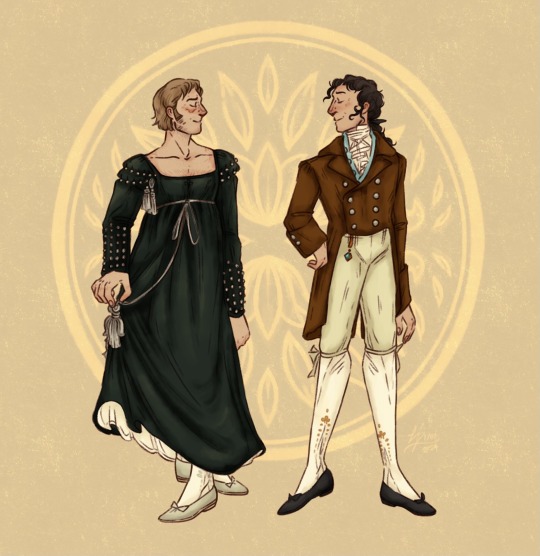
Sovay, Sovay, all on a day /
She dressed herself in man's array...
#em draws stuff#em is posting about sharpe#sharpe#richard sharpe#teresa moreno#Sir We Do Transgenderisms On This Blog :)#and more specifically I will be (and have been!) transing sharpe's gender every which-a-way#the poses are from thomas wilson's 'analysis of country dancing' from 1811#and sharpe's dress is borrowed from thomas phillips' 1801 portrait of elizabeth cochrane-johnstone!#which kiran lacomandante reblogged some time ago with Thoughts about the sharpe reminiscence and I have used for my own goblin purposes#continuing in the vein of my own particular goblin purposes There Will Be A Fic. stay tuned do not adjust your set &c &c#caption lyrics are from sovay which fits teresa's side of things a little better...#I don't really know a folk-song that has the Vibes of my large pile of Thoughts on sharpegender yet
103 notes
·
View notes
Text
so we all are assuming that bojan's latest instagram captions are song lyrics and i think they're in order as well, and i can maybe kind of prove it (this is just for fun and i may just fully be wrong about this). so come journey with me to the world of poetry theory.
the captions put together with stressed syllables marked (yes i split the last caption into two because it made sense):
starlight effect and a cigarette
you should be getting ready for the big day
quotas to fill, bills to pay
the center of the world on a pedestal,
until it's your turn to take the fall
as you can see four of the five lines have five stressed syllables, making it pentameter (while the number of syllables overall is less consistent with 9-11-7-11-9, thus suggesting it is written in accentual verse as well, though that doesn't matter here).
furthermore there's rhymes! lines 2 and 3 have end rhyme just as lines 3 and 4, while the first line has a rhyme within it with 'effect' and 'cigarette', thus making this a rhyme scheme of ABBCC.
based on this i'd say that the captions most definitely are lyrics because otherwise there would be no need for them to be this structured, and they are maybe in order based on the rhymes, do with this what you will.
#my credentials: my bachelor's thesis was on poetry translation and i did a lot of poetry analysis for it#finally putting that english philology degree w a minor in estonian literature to good use#analysing potential song lyrics for a band#joker out
90 notes
·
View notes
Text
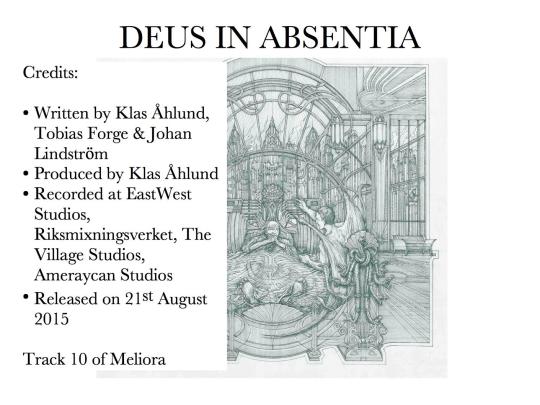

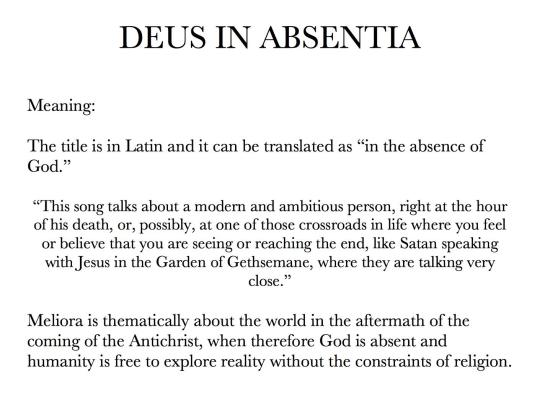
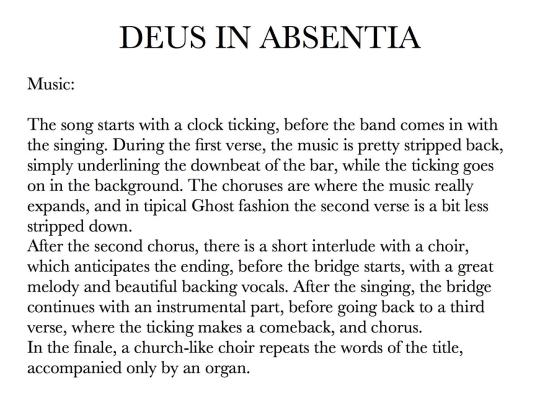
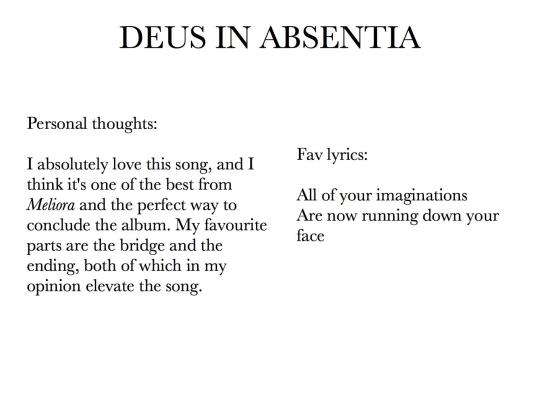
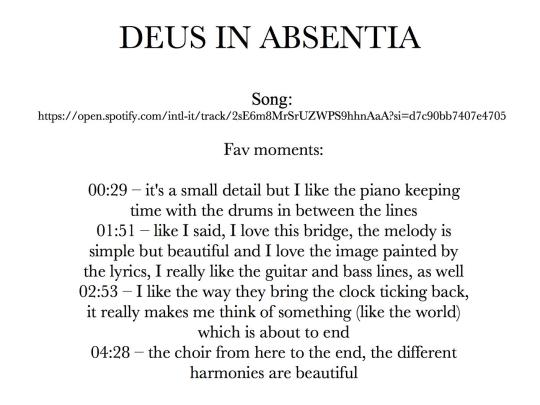

One of the most underrated songs from Meliora (and one of the best)
Links under the cut
youtube
#the ending choir is so good#THE BRIDGE#ghost songs database#deus in absentia#meliora#ghost band#the band ghost#ghost bc#ghost#papa emeritus#papa emeritus iii#papa emeritus 3#terzo#papa terzo#papa emeritus terzo#nameless ghouls#meliora era#song analysis#lyrics analysis#song recs#tobias forge#Youtube
55 notes
·
View notes
Text
I love Jaws with all my heart, so, here I come with a little analysis again!
First off, the title. Bite my neck, drink my blood and make us one type vibes. Sleep Token in general has a massive thing with biting, teeth, consumption and chewing (there's a massive post on Reddit with all the times it's been mentioned, which, if I remember correctly, is around twenty), across their discography, and Jaws is the immediate beginning of this trend.
Jaws are a sign of power, destruction, love, sadness and joy. We bear our teeth when we're happy, when we're angry and when we eat. It is the ultimate metaphor for so many emotions. You don't know someone until you've seen them destroy something, to shout and scream and chew and bite, hence the line "show me those pretty white jaws; show me where the delicate stops". He's asking to see the real them, whoever they are.
All the lyrics have this underlying religious tone, as most Sleep Token songs do, but here it's more directly addressed. "Stained glass" is almost always associated with Churches and Cathedrals, and presents 'them' as something Holy; something that can and will be worshipped. However, the line "Whites of your eyes burn" completely removes all the ideas of safety that surrounds a religious figure. Of course, when it comes to divinity and sin, fire is a massive symbol we have to talk about. To burn is to suffer, but to be cleansed. It's this double entendre that presents this figure of safety as one who is also a threat. A predator.
Then, of course, we have "And I'm not here to be the saviour you long for". Unfortunately, Vessel seems to be in this constant battle of 'I can fix them; we can fix eachother. We're gonna be fine!' and 'I fucking hate you; leave me be or I'll have at you', which is what's seen in this one. Neither of them are the saviour the other one yearns for, yet Vessel still tries. He asks, and then repeats over and over, creating the tone of begging and pleading, for them to show him what they've lost and, in turn, show him love.
He's asking them for the two things they can never genuinely give, but he never stops trying because God forbid the things he'd do if he was alone again.
#also the line 'show me those pretty white jaws'#white reflects purity and innocence (especially in religious context so we're gonna roll with that) but is immediately juxtaposed with ->#the violence of jaws#plus plus!#the album art depicts a shark's jaw (apex predator) imbedded with flowers; yet again juxtaposing utter destruction and fragile beauty again#ugh I love this song#so many little details I can dig my fingers into#(and it also may be a tinsy-tiny bit relatable for me)#sleep token#st#sleep token analysis#jaws (song)#lyric analysis#mel's rambles
128 notes
·
View notes
Text
It's "always an angel, never a god" from Buggy's perspective, but it's "always a god, never an angel" from Shanks' because they always wanted what the other had.
Buggy, who yearned for the approval of others, for them to see he can be useful, powerful, not invisible. He wanted to be acknowledged for his existence and his strength, instead of living in the shadow of others (specifically shanks). Imagine working so hard all the time, but constantly being overshadowed by a bigger presence that you just can't compete with. Always an angel, never a god.
And Shanks, who never looked down on Buggy, but envied him. Buggy, who had that natural charm, that could convince anyone to follow him to the ends of the world. He inspired, and Shanks never believed he had that power (until Luffy proved him wrong). Because to Shanks, he would always be the writer, not the muse. Always a god, never an angel.
#also the end of the song where it goes “go home alone” hits too hard with shuggy#because their idea of home is each other#they can't go home alone :(#the shuggy brainrot it never ending#one piece#buggy the clown#red haired shanks#shuggy#lyrics#character analysis#song analysis#my writing
105 notes
·
View notes
Text
My favourite thing about That Unwanted Animal is how fucking obvious the narrator makes it that it's all going to end badly for them. The scratching at the door, which her lover can't hear. The Holofernes joke, which they just don't get. "What's the time Mr. Wolf?" when they're blind and bleating. The priest that they ignored. Every sign points towards the inevitable end. But all those signs? All those ignored warnings? They aren't a warning that the lover is in trouble. They're warning that the narrator is the one who's going to get hurt. The door shatters, letting the creature in whilst the lover grips her like an animal about to be speared, an open offering for the creature's attack. The lover is blind and bleating whilst bearing their claws for attack. Unable to see, who will they hit? The narrator, bound in their embrace and an easy target. Easy why? Because she is the God-child falling from the sky, an Icarus who ignored all the warnings that she herself gave. And knowing all this she begs, she pleads, "be good to me." And we all know how that ends.
No, not I.
#the amazing devil#joey batey#madeleine hyland#song lyrics#tad#amazing devil#music#song analysis#that unwanted animal#the horror and the wild
443 notes
·
View notes
Text
Screaming from the crypt (or how the past haunts the present on Midnights)
I know it's been discussed so much since Midnights came out but just.
I love how there is such a clear narrative throughout the album (and perhaps especially on the 3am/Vault tracks). About questioning and regret and choices and coming to terms with all of it. It is one long story about how we're all a mosaic of the choices we make, each one taking something from us and leaving something else in its place.
(And now a disclaimer: I'm looking at this mostly through a narrator/subject lens, and trying not to dive too deeply into real-life events or speculation except for in a general sense. For this purpose I like to look at the body of work as art, like literature, because I find it makes it easier to see the common threads in the different songs and cohesion in the narrative.)
In looking at the 3am+ tracks in particular, it's fascinating how some turns of phrases or themes repeat themselves in different songs, in different contexts. (I'm only focusing on the non-standard tracks because there are too many songs and I'd be here all day but I bet I could do a part two lol.) I know many people have pointed out the parallels throughout her discography already and I’m not saying anything groundbreaking by writing this, but I love how these parallels run through in the same album, because it makes it seem like it's one long story, or at least, one long rumination on many different stories that are coalescing into a single narrative.
Battle (let’s go)
For instance, the one that jumped out at me when I started writing this post the other week was, "Tore your banners down, took the battle underground," in The Great War and "If clarity's in death, then why won't this die? Years of tearing down our banners, you and I," in Would've, Could've Should've. It's a story about staying stuck in the same cycle of reliving trauma and coping mechanisms and bad habits over and over again and fantasizing about how taking the “antagonist” out and gaining the upper hand for good would bring closure (WCS), but the truth is that nothing ever will. All that cycle does, though, is repeat itself in other situations, and in this case pushes someone away the narrator cares for (TGW). The difference is that the imagined battle in WCS is a two-way street in her mind (that is ultimately unwinnable because it was never a fair fight), but in TGW it's one-sided -- she's the one fighting dirty, taking shots, the way she'd been doing in her imagination (or nightmares) all these years. But the person in front of her isn't fighting back the way the person in her mind in WCS would, because their intentions are honourable instead of exploitative.
And that's paralleled in another pair of lyrics from the two songs, "And maybe it's the past talking, screaming from the crypt, telling me to punish you for things you never did," (in TGW) and "The tomb won't close, I fight with you in my sleep," (in WCS). In both cases, the funeral imagery makes it seem like this past event should be dead and buried in WCS, but it keeps rising from the dead, haunting her no matter what she does and in TGW, another (or perhaps the same?) tomb that won't close keeps unleashing new ways to hurt her and in turn the new person in her life. In other words, the trauma from the past continues to bleed into the present.
(Again from a literary point of view, I'm not saying the events of the two songs are linked IRL, but they're fascinating textual parallels on the album as a string of chapters, which is why Dear Reader is so compelling, but that's a whole other essay.)
To keep the battle motif going, there’s yet another parallel, this time between TGW’s "[You were a] soldier down on that icy ground, looked up at me with honor and truth," and You’re Losing Me’s "All I did was bleed as I tried to be the bravest soldier, fighting in only your army.” In the former, the subject is laying down his armour in the war she’s projecting onto him, waving the white flag, and she realizes that she’s about to destroy something if she doesn’t put her sword down too. By the time we get to YLM, the roles are almost reversed; at the very least they’re supposed to be on the same team, but in this case she’s doing all the heavy lifting, fighting for their relationship in contrast to his apathy killing it. It’s also pretty interesting (if not outright intentional) that one of the 3am+ editions of the albums starts with The Great War, where they find themselves in conflict (even if it’s in her head) that ends in a truce, and ends with You’re Losing Me signalling the end of the relationship, evidence that the resolution in the first song wasn’t an ending but merely a ceasefire before the last battle.
Putting the rest under a cut because this is waaaaay too long now ⤵️
(There’s also another metaphor there in The Great War with its battle imagery: World War I, aka The Great War, was supposed to be the war to end all wars, because loss on its scale was never seen before and when it ended, most thought never again would the world embroil itself in such battle, the horrors and implications were so devastating. Two decades later, the world found itself in WWII, with an even larger scope and more horrific consequences, the intervening time between the two a period of festering conflicts and resentment leading to some of the worst acts the world would see. Bringing real life into it for a second, there’s something a little poetic, though sad, about The Great War the song being about a fight that could have ended the relationship that they ultimately resolved and was meant to be evidence of the strength of their love, but so too did it end up being a period of détente, the greater battle coming for them years later. But that is not the point of this post.)
If one thing had been different
Another major theme in these editions is pondering the "what ifs?" of life, but I think it takes on even more significance in the broader context of the album in the lyrics of "I'm never gonna meet what could've been, would've been, should've been you," in Bigger than the Whole Sky and the repetition of would've/could've in Would've, Could've, Should've (I would've looked away at the first glance, I would've stayed on my knees, I would've gone along with the righteous, I could've gone on as I was, would've could've should've if I'd only played it safe, etc.) In both songs, the narrator is mourning an alternate course their life could have taken* and questioning what they could have done differently, in the aftermath of trauma and loss, and the regret that comes with that loss, and with the loss of agency in the situation because ultimately it was never in their hands. In an album full of questions, wondering about the path not taken, or the forks in the road that have led to a different version of your life, it's digging deeper into the contrast of choice vs. fate, action vs. reaction, dwelling on the past vs. moving on. When you're supposed to let go of the past, what do you do when it is holding your future hostage?
(*I know there are different interpretations/speculation about BTTWS which I am not getting into on main. I'm just saying that whatever the song is about, it's grieving something that never came to be. The literal origin of the song is less important to the album than the sense of loss it portrays. Whatever the inspiration is, it's crafted to tell part of the story of Midnights of ruminating over how, to borrow from her previous work, if one thing had been different, would everything be different?)
(Also I was today years old when I realized that the words are inverted in the two songs. Apparently I've been hearing BTTWS wrong this whole time.)
There's also an interesting tangent in the role of faith in both songs: in WCS, the events of the story cause her to lose her faith (e.g. "All I used to do was pray," "you're a crisis of my faith,") and question all the things she felt had been unquestionable until that point in her life (e.g. "I could have gone along with the righteous"), whereas in BTTWS, she questions whether that very lack of faith is to blame for the loss in that song ("did some force take you because I didn't pray? [...] It's not meant to be, so I'll say words I don't believe"). It's like pinpointing the moment her life changed and upended her beliefs (WCS), but as a result then leaving her unmoored in times of crisis because ultimately there's no explanation or comfort to be taken from what she used to hold true before that (BTTWS). The words she once relied upon to guide her have long since lost their meaning, but in times of trouble it leaves her wondering if that faith she once held then lost could have prevented this pain.
(Shoutout to WCS for being Catholic guilt personified lol.)
To keep on with the vaguely faith-y notions, an obvious parallel is the line in Would’ve Could’ve Should’ve about, “I damn sure never would've danced with the devil at nineteen,” and, "When you aim at the devil, make sure you don't miss," in Dear Reader. All of WCS is about her fighting with an antagonist who haunts her, with whom she wholly regrets ever becoming involved. DR could be seen as a reflection on that fall from grace, warning the audience that if you choose to go after the person (or thing) haunting you, make sure you do so clearheaded enough to be decisive. Again, these “devils” may not be related in real life: the IRL devil in DR could be speaking about her naysayers, or Kim*ye, or Scott & Scooter B, etc., meaning not to cross your enemies until you know you can win. But taking real life out of it and looking at it textually, I am intrigued by the link between WCS and DR, so that’s what I’m going with here. And perhaps that’s even the point in a wider sense; there will be multiple “devils” in your life, or threats to your well-being. If you’re going to commit to taking them down — whether it’s an actual person, or the demons inside you that refuse to let you go — make sure you have the right ammo so that they can no longer hurt you. (Of course, one lesson from these experiences is that sometimes you can’t win, and you have to live with the fallout.)
(Sidebar: I know that “dancing with the devil” is a turn of phrase that means being led into temptation and engaging in risky behaviour, as opposed to describing the actual person. Given the religious metaphors in the song, that could very well be/is the intention, particularly when it’s preceded by, “I would have stayed on my knees” as in she would have continued to follow her faith — in whatever sense that means — had she never met this person, which could also be a more eloquent way of saying she would have continued to be live her life in a way that was righteous (even naive) and seen the world in black and white. Either way, it’s a force she wholly rejects. Like I said, multiple devils, same fight.)
Regret comes up too: in WCS, she says, "I regret you all the time," obviously directed at the person who manipulated her and led to her perceived downfall, citing him as the one impulse she wished she'd never followed, because it won't leave her no matter how hard she’s tried. In High Infidelity, she tells the person to, "put on your records and regret me," and on the surface, it’s like she’s turning the tables, painting herself as the one now causing the regret in someone else, the one inflicting the pain this time. Yet the verse preceding it and the lines following it in the chorus depict a partner who is also emotionally manipulative and vindictive like in WCS (“you said I was freeloading, I didn’t know you were keeping count,” “put on your headphones and burn my city,”). It’s not so much that she’s intentionally harming the person (the way the person in WCS does to her), but rather that the venom in the subject’s feelings towards her seeps through; she’s imagining the way he’s going to feel about her when she leaves, hating her just for by being who she is. (There could be another tangent about how in both songs she’s there to be a “token” in a game for both of the men, who play her for their own purposes.) The regret is dripping with disdain. It’s as though she’s picturing how the person is going to hate her for doing what she’s thinking of doing the way she hates the person who first hurt her.
Sadness, unsurprisingly, shows up in a few lyrics. In BTTWS, “Everything I touch becomes sick with sadness,” sets the scene of a person so overcome with grief that it permeates everything around them; they cannot see their way out of it and feel like the fog will never lift. In Hits Different, it’s, “My sadness is contagious,” the result of a breakup where the person’s grief again touches everything and everyone around them, pushing them further in their despair and loneliness. The reason behind the grief in either case may vary, but regardless of the source, the feeling is overpowering and isolating. They may be different chapters in the story, but the devastation is hauntingly familiar. (As is a recurring theme in Midnights as a whole: there are situations and feelings that present themselves at different points in her journey and colour in the lines in different ways along the road. Like revisiting an old vice and realizing the hit isn’t quite the same as it was in the past.)
Death by a thousand cuts
She also writes about wounds on this album, which isn't surprising I suppose given that the whole conceit is that these are things that have kept her up at night over the years. WCS is perhaps the driving narrative on this never ending hurt when she sings, “The wound won't close, I keep on waiting for a sign, I regret you all the time,” suggesting that no matter what she does, the pain of this experience has permeated everything she’s done afterwards. (Not unlike the overwhelming grief in BTTWS, for instance.) Elsewhere, in High Infidelity she sings, "Lock broken, slur spoken, wound open, game token," and in Hits Different, "Make it make some sense why the wound is still bleeding.” Again I'm not suggesting they're about the same events; the line in HI is about a situation where a partner crosses a boundary, hits below the belt, picks at an insecurity (or creates a new one) and treats the relationship like it's transactional, opening the floodgates in turn. In HD, the wound seems to be more self-inflicted, where she's pushed the person away. (Over a situation real or imagined she feels she needs distance from.) But again, something has picked at her like a raw nerve, and just like in the past, she's hurting, even in a different time and place and person. Almost like the wounds of the past break open over and over again to create new scars. If one were to extrapolate further, it wouldn’t be the biggest leap to wonder if the wound open in WCS, then torn apart in HI makes the one in HD hurt even more.
(I once wrote a post about how I think as time goes on, WCS is going to turn into one of those songs that will be found to drive so much of her work, because it’s just… kind of the unsaid thesis statement of so much of her songwriting.)
Another repeated theme is that of the empty home and loneliness. In High Infidelity, she sings, "At the house lonely, good money I'd pay if you just know me, seemed like the right thing at the time," painting a picture of someone who may have everything they'd want to the outside world, but in reality feels metaphorically trapped in their home (or at least alone amidst abundance), a symbol of a relationship gone sour and a failure to build connection. She just wants someone to understand her, want her for her, but as she's written earlier in the song, she's just a pawn in the game, a trophy from the hunt. Home, in this case, is lonely, isolated, an emblem of her fears. In Dear Reader, she continues this thread, then singing, "You wouldn't take my word for it if you knew who was talking, if you knew where I was walking, to a house not a home, all alone 'cause nobody's there, where I pace in my pen and my friends found friends who care, no one sees you lose when you're playing solitaire." It's the same idea, admitting to listeners that the gilded cage she lived in kept her distanced from her loved ones and real connection, keeping her struggles close to the vest but feeling desperately lonely amidst her crowning success. She's pushed people away and it may have felt like the right thing at the time, but in the end maybe felt like she was trapped. And when you push people away, eventually they take you at your word and stop pushing back; you’re a victim of your own success at isolating yourself. What starts out of self-preservation then further perpetuates the underlying problems.
(There's another interesting link about "home" also feeling unsafe with HI's "Your picket fence is sharp as knives," which further leads into the theme of marriage/domesticity feeling dangerous, which is a whole other thing I won't get into here because it's another discussion and may derail this already gargantuan word salad.)
In a slightly similar vein, we have the metaphor of bad weather for a rocky road or unstable relationship, in High Infidelity again with, "Storm coming, good husband, bad omen, dragged my feet right down the aisle" and You’re Losing Me’s "every morning I glared at you with storms in my eyes.” They aren’t speaking of the same situation or even same kind of breakdown, but it is pretty interesting how the idea of clouds/storms/floods/etc. play such a role in Taylor’s music to signal depression, apprehension, fear, uncertainty, etc. In HI, I think the “storm” coming is the looming threat of commitment to a partner who makes the narrator uneasy (if not fearful). In this case, the idea of making a life with this person is not one that incites joy or comfort, but instead makes the narrator feel that dark times are ahead if she continues down this path. Perhaps in some way, the “storms” in YLM have made good on the threat in HI in a different way; it’s a different home, a different relationship, but the clouds have settled in regardless, and some of her fears have come to fruition in ways she did not expect. The person she once trusted no longer sees her or her struggles (or worse, doesn’t care), and the resentment and pain build with each passing day.
Coming back to heartbreak, one of the obvious "full circle" moments is the beginning of a relationship in Paris, where she says that, "I'm so in love that I might stop breathing," clearly enthralled in a new love that allows her to shut the world out and grow in private, capturing the all-encompassing nature of the relationship. This infatuation has consumed her in the most wonderful way (in contrast to the sorrow of some of the previous songs), and it feels like a life-altering (or even life-sustaining?) force that is so strong she may forget what it’s like to breathe. (Metaphorically speaking, of course.) By the end of the album, though, in You're Losing Me, that heart-stopping love has become a threat: "my heart won't start anymore for you." In the former, her racing heart is full of excitement, but by the latter, her heart has given out completely under the weight of the pain she bears. (YLM is full of death/illness imagery which I already wrote about awhile ago so I won't hear, but needless to say that song deserves its own essay for so many reasons.) She's gone from the unbridled joy of the beginnings of a relationship to the unrelenting sorrow of its end, two sides of the same coin.
Love as death appears elsewhere in the music too, for instance, in High Infidelity’s, “You know there's many different ways that you can kill the one you love, the slowest way is never loving them enough" and You’re Losing Me’s “How can you say that you love someone you can't tell is dying? […] My face was gray, but you wouldn't admit that we were sick.” Though not completely analogous situations, they both tell the tale of one partner’s apathy (or at least denial) destroying the other. In the former, the partner’s actions (or inaction) are more insidious, if not sinister; in the latter, the lack of momentum (or admission of a problem) is passive. In both cases, the end result is the narrator’s demise; it’s a drawn out affair that chips away at her morale and her health and her sense of self. (Breaking my own rule about bringing in alleged actual events into the discussion, but the idea that the relationship in High Infidelity, which was obviously fraught with unease and even fear, ended in a similarly excruciatingly slow and hurtful death by a thousand cuts as the relationship in You’re Losing Me almost did at that time must have been so painful. It almost feels like YLM is wondering why what used to be a source of light in her life was mirroring a situation that caused her such pain in the past.)
From the same little breaks in your soul
I said early on that part of what is so compelling about Midnights is that it feels like an album about ruminating — on choices, on events, on people — and the two final “bonus” tracks of the album depict that as well. In Hits Different, she sings that, “they say if it’s right, you know,” an ode to the confusion of a breakup and struggling with the aftermath of calling it quits. It’s a line that has always intrigued me, because the typical use of the phrase is in the sense of, “you’ll know when you meet the one,” but here it seems to have a double meaning, a reassurance perhaps from the friends (who later on tell her that "love is a lie") that she’ll know if she’s made the right decision in calling it off, but could also be her wondering if the relationship is right, she’ll know, and want to reconcile. In the final bonus track, You’re Losing Me, she sings, “now I just sit in the dark and wonder if it’s time,” this time leaving no doubt about the dilemma she faces, though it’s no less fraught. She’s wondering, perhaps for the last time, if now is finally the moment to end the relationship for good. They say that if it’s right she’ll know, and now she’s wondering if that feeling inside her (that once told her her partner was the one, which is why it hit differently), is telling her that it’s time to go for good. Wait Alexa play “It’s Time To Go.” These are not only the things that keep her up at night, but the things that play over in her mind like a film reel in her waking hours.
Midnights as a whole is a deeply personal album, as is most of Taylor's work, but the 3am+ edition tracks seem to dig even deeper to a lot of the issues raised on the standard album. Almost like the standard tracks are the things she wonders about on sleepless nights, but the bonus tracks are the things that haunt her in the aftermath. The regret, anger, sadness, grief, relief, even joy— they’re the price she pays for the memories she keeps reliving. Midnights might be the most cohesive narrative of all her albums, and really does feel like we’re watching someone work through her journal over time, stopping short of outright naming those giant fears and intrusive thoughts (except for when she does) but making them plain as day when you connect the songs together, and perhaps never more clearly than in the expanded album. It’s incredible how the songs stand on their own to relay a specific moment in time, but that they are also self-referential to each other (whether thematically or overtly) to weave a larger web over the entire work. We’re so lucky as fans to have these stories and to keep peeling back these layers as time passes. (And my literature-analysis-loving ass loves her even more for it.)
This is obviously by no means an exhaustive list, and I know there are more parallels and probably even stronger links (particularly when you add the standard version into the mix), but these were the ones that particularly struck me and I’m just glad I’ve had a chance to sit with this and think it through. ❤️
#writing letters addressed to the fire#me thinking too hard about taylor lyrics#taylor swift#midnights#long post#lyrics analysis#song parallels#Gabby this one is for you friend <3#here goes nothing#Happy Friday or something idk!#(also i know i said there are things i wouldn’t discuss on main but my dms are open lol)#this is not as structured or well plotted out as I wanted it to be#and turned out to be more stream of consciousness than legit essay#but whatever at least i got my thoughts out there and it can release some plot of land in my brain for other stuff to think over lol#If anyone ever reads this thank you! And I’m sorry?#The best compliment i ever got in school#was when we were doing an analysis of a poem in English lit in college#And i brought something up casually#and my prof went ‘I’ve been teaching this class for eight years and that’s the first time anyone’s ever brought it up like that’#’and that just blew my mind’#and i was like ‘who me?’#so that’s all you need to know about me lol#Midnights: The Great War#Bigger than the whole sky#bttws#Midnights: Paris#Midnights: high infidelity#would’ve could’ve should’ve#Midnights: dear reader#midnights: bigger than the whole sky
72 notes
·
View notes